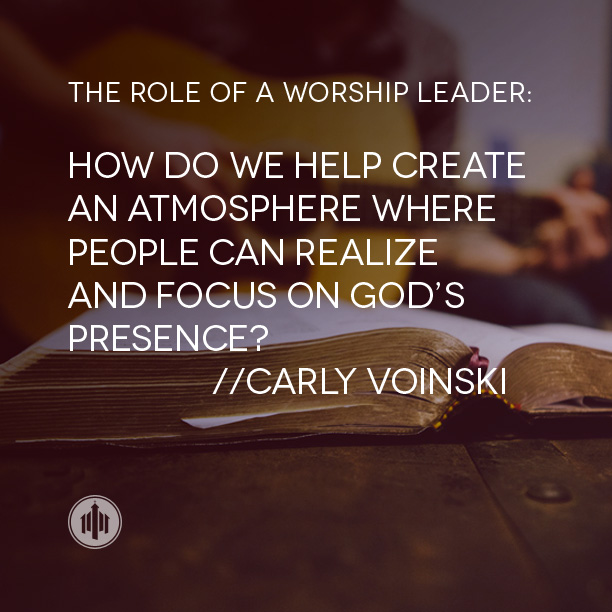I love being used by God to further His Kingdom. I think most of us that read this post can ultimately say the same thing. Sometimes it’s hard, sometimes it’s frustrating, but really we love it. God uses His people in service to His church in many ways. I’ve noticed though that some areas of the church get more attention and undeserved higher status. The danger in this for those of us serving through worship, is that we can easily begin to believe the lies that we are more holy, more spiritual, and even closer to God than others.
Countless times I have been approached by people who thank me for ushering God into the room. Ok, so here’s the thing, God was already there. I shouldn’t be getting the credit for God’s presence. There is nothing so holy about my vocals that can have an authority over God to basically call him into a room. Worship leaders are not a middleman for the congregation, they are worship helpers. “For there is one God and one mediator between God and men, the man Christ Jesus (1 Tim. 2:5).” The finesse of a good worship leader is one who can help us remove distractions, help us focus on who God is and why we praise His name, all while trying to get the tempo back to where it should be and throwing signals to repeat a bridge at the keyboard player.
So, how do we walk this fine line? How do we help create an atmosphere where people can realize and focus on God’s presence? How do we avoid believing the lies that extra attention can tell us? How do we keep it about Jesus and not about ourselves?
Get Your Heart Straight
Before we can serve the church well in any capacity our hearts need to be straight. We all need encouragement to be in the Word, to stay in it, and to reflect on it. Spend time in the Word and in prayer with your team. We do what we do because of Jesus. If we are not continuing to build that relationship through scripture and prayer then how can we properly lead others to do the same?
Set Others Straight
Okay, so when I was taking a class at Liberty University one of the professors said something along the lines of, “When people come up to you and praise you after a worship set, set ‘em straight, it’s not about you, it’s about Jesus!” (enter awkward silence) It was a long awkward silence as week by week I knew that I should graciously always point people back to God and the reason behind the worship, but I felt so uncomfortable doing it. When I finally got over myself and got tired of shallow conversations with people I started to gently do what the professor had said. This was actually amazing! It opened up many conversations with people I normally just had brief encounters with. I had a better understanding of where the people in my church were at, which I truly believe allowed me to lead better than I had been.
Speak Straight
I’m all about leaving room for the Holy Spirit to move and work throughout a worship experience, don’t get me wrong. However, we need to pay attention to the things we say from the platform. In no way am I saying that all of our prayers or transitions should be written out prior. I am saying that we need to be more aware of the things we say, the things we pray for, how we speak with our churches. For example, there is a difference between “Ushering in God’s presence” and “Realizing God’s presence”. We are not all theologians and our churches while similar in many ways do have differences. However, though our talent and gifts may be vocal or instrumental, what we say is important and carries great weight. If you don’t know where your church stands on this issue of worship start a conversation with one of your pastors. Create conversation with the members of your team. It is not only helpful to continuously discuss our role within the church but also a great opportunity to shepherd those you lead. Use your words to draw the focus of your church to Christ. Use your words to remind people of who God is and why we lift His name in song.
This is touchy subject matter but I hope if nothing else it sparks conversation between you and other leaders. That you and your team can dig deeper and really think about how your church views your role compared to what you think your roles really are. What do you think the role of the worship team is? Does the leader have a bigger responsibility? How do you engage with those who you seem to lift your role higher than theirs? Is it true?





 It’s a Symphony
It’s a Symphony